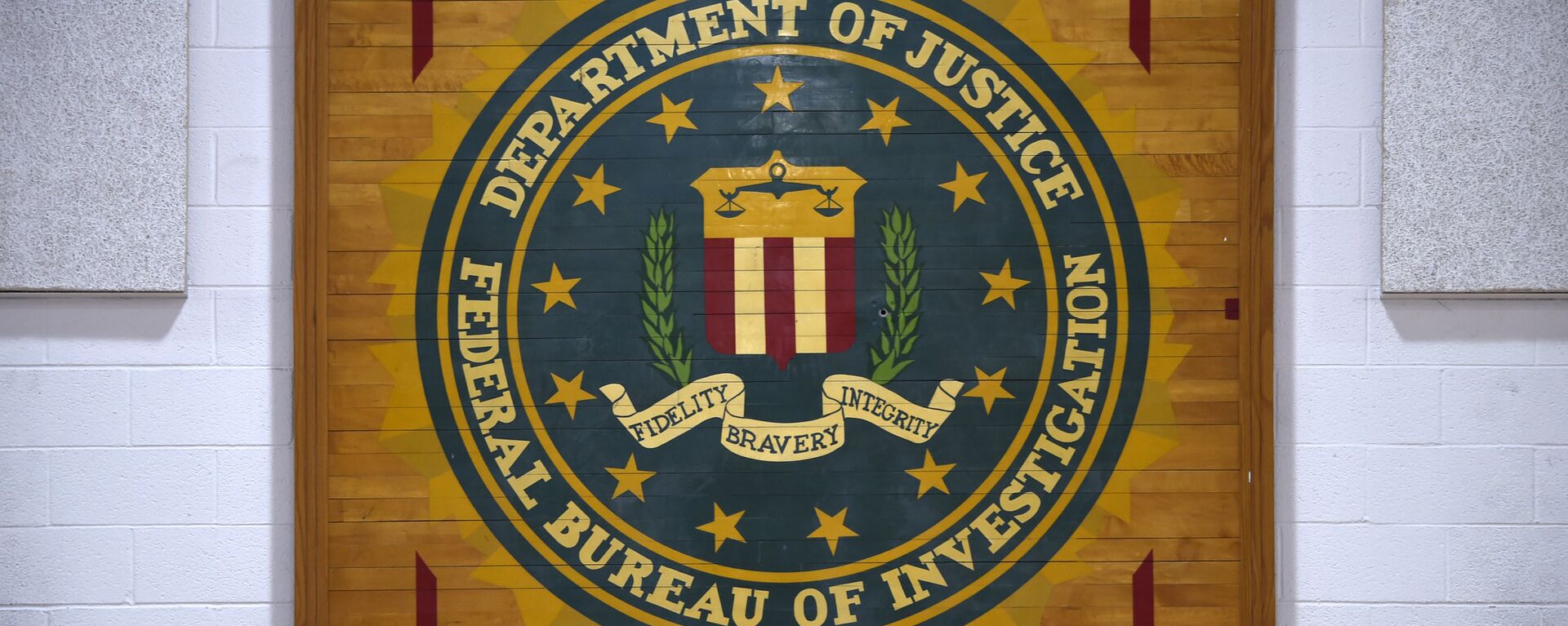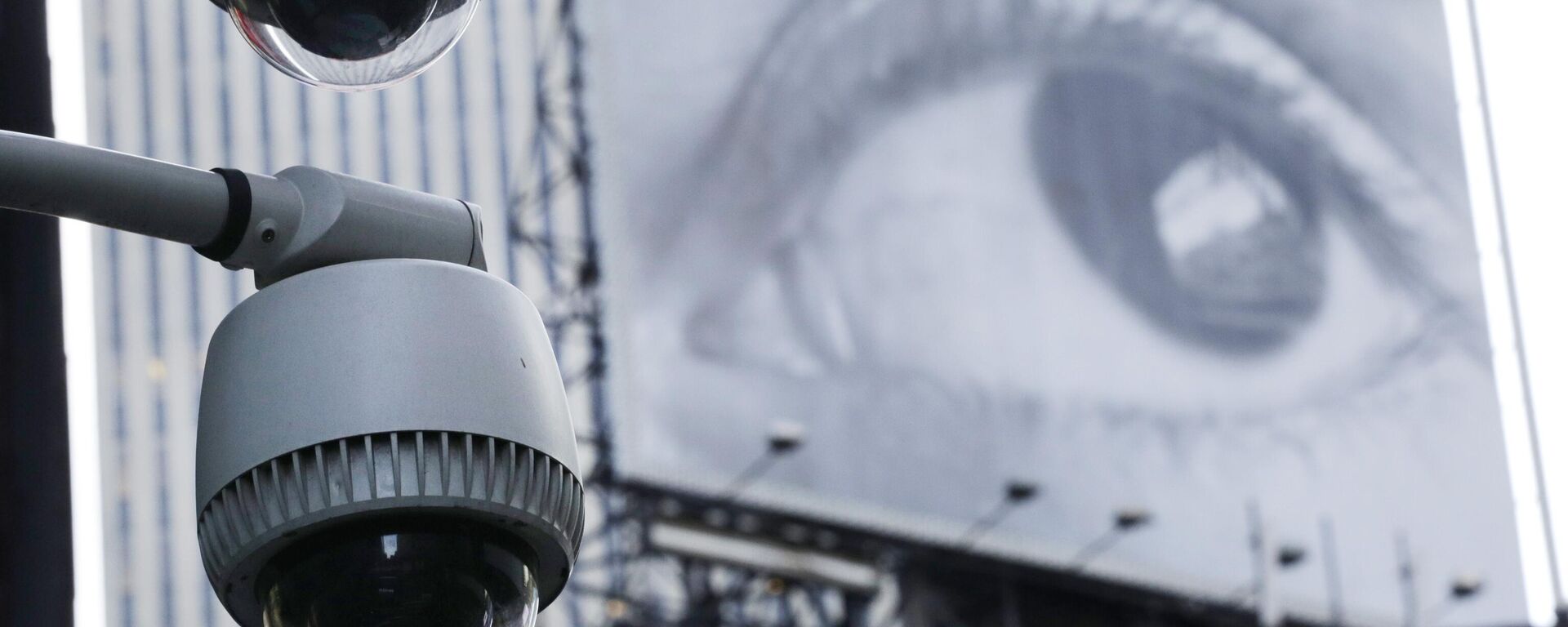https://sputnikglobe.com/20240419/techno-fascism-privacy-advocates-decry-fusion-of-big-tech--government-surveillance-1118003751.html
Techno-Fascism: Privacy Advocates Decry Fusion of Big Tech & Government Surveillance
Techno-Fascism: Privacy Advocates Decry Fusion of Big Tech & Government Surveillance
Sputnik International
The likely renewal of the Foreign Intelligence Surveillance Act points the way to a troubling future where the state has unlimited power to spy on our private lives, warns one activist.
2024-04-19T00:54+0000
2024-04-19T00:54+0000
2024-04-19T00:54+0000
analysis
us
ted rall
angie wong
mike johnson
national security agency (nsa)
nsa
congress
us foreign intelligence surveillance act (fisa)
government surveillance
https://cdn1.img.sputnikglobe.com/img/07e8/04/12/1118003946_0:160:3072:1888_1920x0_80_0_0_2f260ae09a3df63249c9ef34a1c1da3b.jpg
After its future was briefly in doubt, US Congress appears poised to extend a controversial law granting the National Security Agency (NSA) sweeping global and domestic spying powers.The Senate voted to move forward with consideration of the bill Thursday afternoon on a 67 to 32 vote. Senate Majority Leader Chuck Schumer (D-NY) has promised to consider proposed changes to the law before its likely passage Friday, but observers say the renewed Foreign Intelligence Surveillance Act (FISA) is set to grant US intelligence agencies unprecedented abilities with no judicial oversight.“If it gets renewed… the NSA becomes the most powerful agency in the universe,” said host Angie Wong on Sputnik’s The Final Countdown program Thursday. “It can spy on everybody – Americans, especially, without a warrant.” Activist and writer Tyler Nixon joined Wong and co-host Ted Rall to discuss the issue.“I think in years past we probably would have thought this was a crazy turn of events,” said the US Army veteran. “I think they just figured, ‘You know what? We survived this one, let's go for broke, let's add in this massive expansion so that now everybody can be enlisted to be part of the deep state's supposedly non-existent tentacles.’”“We're talking about very serious stuff,” agreed Rall. “We're not talking about just trolling your social media feeds, which obviously anyone can just do. But we're talking about listening to your phone calls, opening your mail, breaking into your home and installing wiretaps. This is very old fashioned kind of stuff, going into your bank accounts, looking at all of your transactions. I mean, this is like every detail of your life is going to come out.”The renewed FISA law narrowly passed the House of Representatives earlier this week. The legislation was initially deadlocked 212-212, but House Speaker Mike Johnson cast a rare tie-breaking vote in favor of the law. Johnson had previously expressed opposition to the renewal of the act, which has been met with opposition from conservative Republicans.The law, which dates back to 1978, was originally envisioned as a check on executive power after the abuses of former President Richard Nixon amid the Watergate scandal. The legislation was dramatically expanded in the 2000s to grant government agencies enhanced spying powers in the wake of the September 11, 2001 terrorist attacks.Initially the NSA was required to seek approval for electronic searches from secret FISA courts, which were frequently derided as mere “rubberstamp” institutions. But the most recent revision of the bill dispenses even with that safeguard.“I literally wrote the book on Ed Snowden,” said Rall, referring to the NSA whistleblower who sought refuge in Russia after revealing the breadth of the agency’s surveillance activities. “When I was doing the research on all the stuff that he revealed – it's gobsmacking, right? I mean they have voice recognition software such that if you buy a burner phone and you're like in, let's just say Bangladesh, and you start making a phone call, within seconds your voice… is ID'd in Fort Meade and it's immediately, within seconds, triangulated to its location.”“And if they wanted to, they could just take you out with a drone while you're standing there on the street in Dhaka. It's absolutely like there is no privacy at all. And it's terrifying.”Rall explained that the popularity of cloud storage has spurred spy agencies to refocus their surveillance efforts.Rather than monitoring communications in real time, the government now seeks access to online data centers. The rise of social media has led to massive amounts of private information being centralized in such locations, and companies like Facebook and Twitter have proven willing to share such data in return for favorable legislation from Congress.“These are not exactly the people who are going to be worried about individual privacy, the tech giants,” said Nixon. “There's no pushback whatsoever. It was really just a matter of how deep on bended knee could they go… They don't really care about an expansion like this. If anything they feel like it takes some of the heat off them and expands it to where every American citizen potentially could be targeted. And I think that's really what this is about.”“I think our Congress is very much captured by the national security police state, and they manipulate and control these people one way or another… It's unfortunate because we have totally lost control of even our own elected representatives.”
https://sputnikglobe.com/20210428/fisa-court-docs-how-the-fbi-continues-to-spy-on-americans-without-a-warrant-and-get-away-with-it-1082750168.html
https://sputnikglobe.com/20240418/surveillance-panopticon-grows-more-powerful-with-attempted-tiktok-ban-backdoors-1117987163.html
https://sputnikglobe.com/20240219/spy-versus-spy-chinese-intelligence-agency-slams-cia-1116867364.html
Sputnik International
feedback@sputniknews.com
+74956456601
MIA „Rosiya Segodnya“
2024
John Miles
https://cdn1.img.sputnikglobe.com/img/07e8/01/19/1116388787_0:0:1316:1316_100x100_80_0_0_77e70d36afd983012b1c5d38ddb84156.jpg
John Miles
https://cdn1.img.sputnikglobe.com/img/07e8/01/19/1116388787_0:0:1316:1316_100x100_80_0_0_77e70d36afd983012b1c5d38ddb84156.jpg
News
en_EN
Sputnik International
feedback@sputniknews.com
+74956456601
MIA „Rosiya Segodnya“
Sputnik International
feedback@sputniknews.com
+74956456601
MIA „Rosiya Segodnya“
John Miles
https://cdn1.img.sputnikglobe.com/img/07e8/01/19/1116388787_0:0:1316:1316_100x100_80_0_0_77e70d36afd983012b1c5d38ddb84156.jpg
fisa renewal, fisa techno-fascism, fisa fascism, fisa social media companies, social media surveillance, twitter surveillance, facebook surveillance, fisa act congress, fisa bill powers, fisa nsa powers
fisa renewal, fisa techno-fascism, fisa fascism, fisa social media companies, social media surveillance, twitter surveillance, facebook surveillance, fisa act congress, fisa bill powers, fisa nsa powers
Techno-Fascism: Privacy Advocates Decry Fusion of Big Tech & Government Surveillance
The likely renewal of the Foreign Intelligence Surveillance Act points the way to a troubling future where the state has unlimited power to spy on our private lives, warns one activist.
After its future was briefly in doubt, US Congress appears poised to extend a controversial law granting the National Security Agency (NSA) sweeping global and domestic spying powers.
The Senate voted to move forward with consideration of the bill Thursday afternoon on a 67 to 32 vote. Senate Majority Leader Chuck Schumer (D-NY) has promised to consider proposed changes to the law before its likely passage Friday, but observers say the renewed Foreign Intelligence Surveillance Act (FISA) is set to grant US intelligence agencies unprecedented abilities with no judicial oversight.
“If it gets renewed… the NSA becomes the most powerful agency in the universe,” said host Angie Wong on
Sputnik’s The Final Countdown program Thursday. “It can spy on everybody – Americans, especially, without a warrant.” Activist and writer Tyler Nixon joined Wong and co-host Ted Rall to discuss the issue.
“I think in years past we probably would have thought this was a crazy turn of events,” said the US Army veteran. “I think they just figured, ‘You know what? We survived this one, let's go for broke, let's add in this massive expansion so that now everybody can be enlisted to be part of the deep state's supposedly non-existent tentacles.’”
“If you are targeted in any way and you find out about it, they can actually just notify you if they want because with it comes a national security letter saying that you are barred by law from discussing or disclosing it to anyone at all whatsoever – even your attorney – you can't even get legal counsel on it,” he added. “This is Orwellian-level fascist, totalitarian mechanisms, frankly, come to life right in front of us. And they're just signing off on it.”
“We're talking about very serious stuff,” agreed Rall. “We're not talking about just trolling your social media feeds, which obviously anyone can just do. But we're talking about listening to your phone calls, opening your mail, breaking into your home and installing wiretaps. This is very old fashioned kind of stuff, going into your bank accounts, looking at all of your transactions. I mean, this is like every detail of your life is going to come out.”
“I don't know how this happened… We had civil libertarians both on the left and on the right in Congress who were going to block this. It looked like it was going to die. Even former President Trump, the head of the GOP, was against it.”
The renewed FISA law narrowly passed the House of Representatives earlier this week. The legislation was initially deadlocked 212-212, but House Speaker Mike Johnson cast a rare tie-breaking vote in favor of the law. Johnson had previously expressed opposition to the renewal of the act, which has been met with opposition from conservative Republicans.
The law, which dates back to 1978, was originally envisioned as a check on executive power after the abuses of former President Richard Nixon amid the Watergate scandal. The legislation was dramatically expanded in the 2000s to grant government agencies enhanced spying powers in the wake of the September 11, 2001 terrorist attacks.
Initially the NSA was required to seek approval for electronic searches from secret FISA courts, which were frequently derided as mere “rubberstamp” institutions. But the most recent revision of the bill dispenses even with that safeguard.
“I literally wrote the book on Ed Snowden,” said Rall, referring to the NSA whistleblower who sought refuge in Russia after revealing the breadth of the agency’s surveillance activities. “When I was doing the research on all the stuff that he revealed – it's gobsmacking, right? I mean they have voice recognition software such that if you buy a burner phone and you're like in, let's just say Bangladesh, and you start making a phone call, within seconds your voice… is ID'd in Fort Meade and it's immediately, within seconds, triangulated to its location.”
“And if they wanted to, they could just take you out with a drone while you're standing there on the street in Dhaka. It's absolutely like there is no privacy at all. And it's terrifying.”
Rall explained that the popularity of cloud storage has spurred spy agencies to refocus their surveillance efforts.
Rather than monitoring communications in real time, the government now seeks access to online data centers. The rise of social media has led to massive amounts of private information being centralized in such locations, and companies like Facebook and Twitter have proven willing to share such data in return for favorable legislation from Congress.
“These are not exactly the people who are going to be worried about individual privacy, the tech giants,” said Nixon. “There's no pushback whatsoever. It was really just a matter of how deep on bended knee could they go… They don't really care about an expansion like this. If anything they feel like it takes some of the heat off them and expands it to where every American citizen potentially could be targeted. And I think that's really what this is about.”
“The definition of fascism is the merger, frankly, of corporate or concentrated wealth interests with the state and this FISA law and the way they've used these intelligence surveillance powers through these tech companies… just indicates to me that we're closer and closer with each one of these expansions to what is you can't tell the difference,” he warned. “You can't tell where the government censors end and your Twitter or whoever begins.”
“I think our Congress is very much captured by the national security police state, and they manipulate and control these people one way or another… It's unfortunate because we have totally lost control of even our own elected representatives.”








